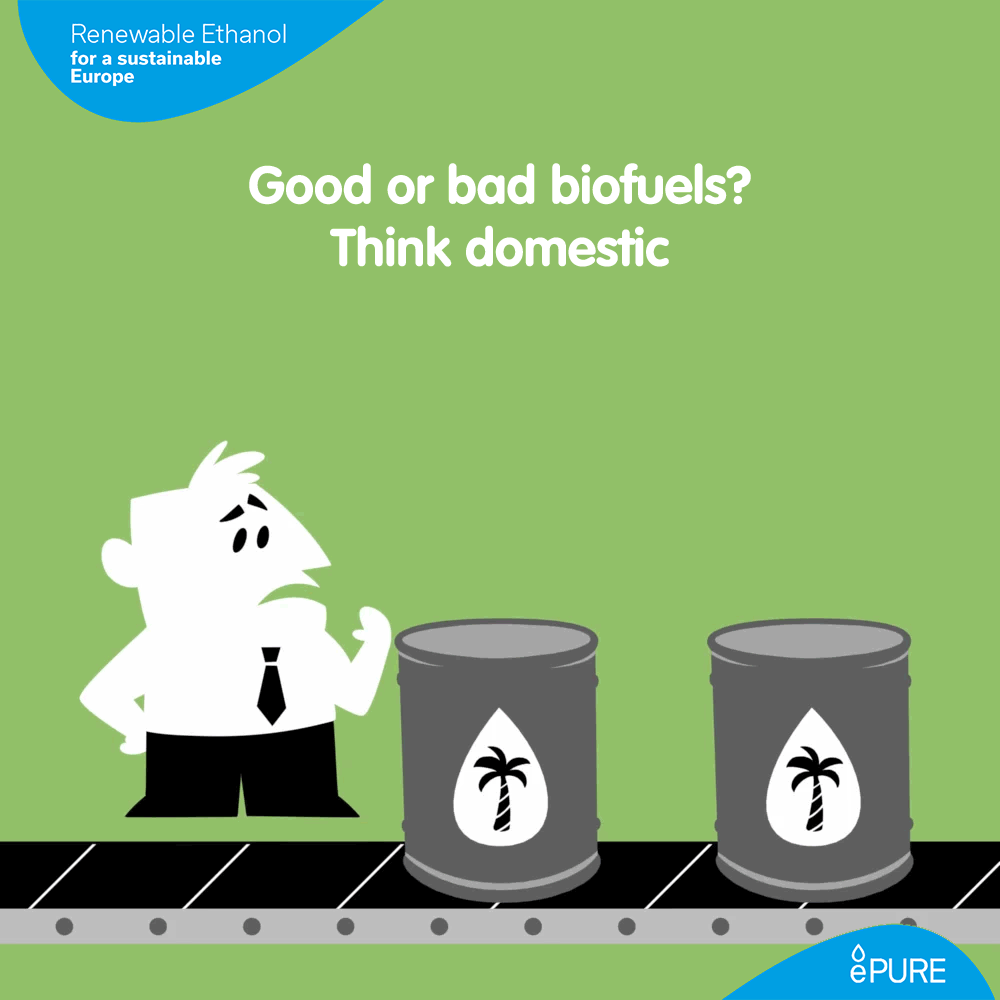
Are biofuels sustainable?
European ethanol is. Here’s why.
Is ethanol production sustainable?
 In Europe, yes. Fuel ethanol production in Europe uses a small amount of land – and does not cause deforestation. Virtually all of the crops used to produce EU ethanol are sourced sustainably in Europe. Sustainability criteria ensure that ethanol production meets or exceeds a minimum level of greenhouse-gas savings. Crops used for biofuels production do not come from land with high carbon stock (e.g. forests) or with high biodiversity value. Certification is in place to ensure these criteria are met.
In Europe, yes. Fuel ethanol production in Europe uses a small amount of land – and does not cause deforestation. Virtually all of the crops used to produce EU ethanol are sourced sustainably in Europe. Sustainability criteria ensure that ethanol production meets or exceeds a minimum level of greenhouse-gas savings. Crops used for biofuels production do not come from land with high carbon stock (e.g. forests) or with high biodiversity value. Certification is in place to ensure these criteria are met.
Doesn’t ethanol production lead to deforestation?
Not in Europe. Virtually all crops used to produce EU ethanol are grown sustainably in Europe and thus are not responsible for land grabs or deforestation. Ethanol fuel is one of many co-products from ethanol refineries. Crops used by these refineries represented less than 2.2% of the European utilised arable land in 2018[1] , to produce ethanol, animal feed and captured CO2. This surface is smaller than the unused land by farms in Europe.
What about palm oil?
Palm oil from Southeast Asia is is used to produce biodiesel, not renewable ethanol. In the EU, renewable ethanol is made from sustainably grown crops and waste and residues. Its production does not require land-grabs or deforestation.
How does biofuels production affect farmers?
The production of crop-based biofuels in Europe generates at least €6.6 billion revenue for EU farmers per year – and helps them to invest in increased farm productivity.
How does biofuels production affect the economy?
The renewable energy sector is an important generator of jobs worldwide, and in rural areas in particular. In Europe, the biofuels sector accounts for an estimated 200,000 jobs, according to IRENA. Ethanol production is thus an important economic boost to rural development across Europe.
Doesn’t ethanol just continue the use of polluting cars?
Ethanol helps reduce harmful emissions from today’s cars, and from the cars that according to the latest research are likely to make up the majority of the EU auto fleet in the coming decades. Use of ePURE members’ ethanol results in an average savings of more than 79% of greenhouse-gas emissions compared to fossil fuel.
[1] ePURE calculations from EU Agricultural Outlook and JRC RED II Default Values input data. 100% of the crops used for EU ethanol production is assumed to be of EU origin, maximising the calculated area.
